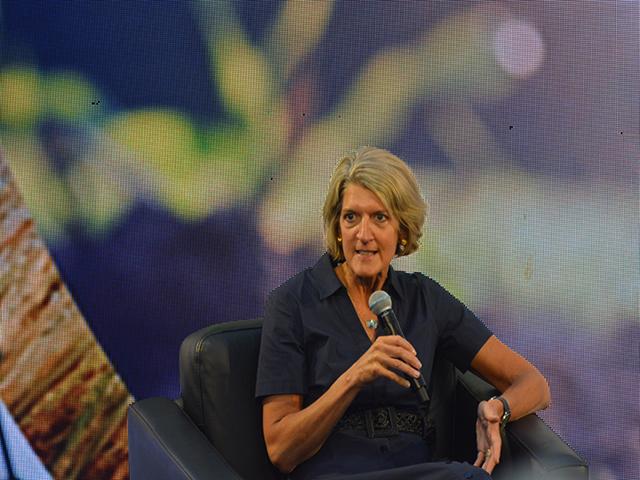Ag Policy Blog
Land O'Lakes CEO Sees Storm Brewing in Agriculture, Rural America
Beth Ford, president and CEO of Land O'Lakes, wrote a column in Time magazine this week sounding alarms about the farm economy and trends in agriculture.
Ford spotlighted the continuing loss of farmers and implied that trend could get worse with the low prices that have plagued grain producers.
"Grain farmers today are facing the most challenging economics since 2009. Food security is national security. Trade lanes are shifting. Interest rates are high. Commodity prices are eroding. Labor is insufficient and inaccessible, and there is no certainty of a new Farm Bill, or the safety net it traditionally provides. Some of these factors are not new, but the complexity of the combination of issues, and the speed with which they are accelerating, is. It's not just one thing. It's all the things. Farm bankruptcies have roughly doubled, compared to last year."
It should be noted the One Big Beautiful Bill Act did address multiple issues in the farm bill. The prospects of Agricultural Risk Coverage (ARC) or Price Loss Coverage (PLC) payments have increased for the 2025-26 crop year, though those payments would not be paid until fall 2026. Crop insurance premium subsidies were increased to help farmers buy higher levels of coverage as well.
Ford pointed to the 25% decline in farm income from 2022 to 2024, and the prospects of lower farm income in 2025. Ford wrote that median farm income this year is estimated at -$328.
"Think of that--a year of sweat and effort to lose $328. Most estimates indicate that less than 5% of farms will be profitable this year, for the third year in a row. In fact, nearly 90% of farm families need to rely on off farm income to keep their operations viable and to feed their own families."
Evolving trade policy has taken away markets as Brazil trade has gotten stronger and China has become more self-sufficient, Ford stated.
P[L1] D[0x0] M[300x250] OOP[F] ADUNIT[] T[]
The next crop will be even more expensive to plant with higher input prices and lower commodity prices.
"Farmers saved and invested four years ago when the commodity markets fueled some profit and there was some assistance for natural disaster relief. Now, those reserves have been exhausted for many," Ford wrote.
Farmers are aging and more farmland is set to transition in the coming years. Farmers also have more competition for ground.
"As private equity firms have become financial buyers of farmland, consolidation trends are changing. In Iowa alone, 20 million of its 30 million acres of farmland are set to transition. When farms are owned by firms, not families, communities wither. Contract farming does not plant community roots," Ford wrote.
Suggesting change must focus on policy and not politics, Ford stated,
"We need a robust trade agenda that opens market access for U.S. products. We need immigration reform that provides both border security and solves our labor challenges. And we need a new Farm Bill to provide certainty to America's farmers in this volatile time. These are the big drivers and of course, there are additional ways to assist."
Ford added, "We must pay attention to the gathering storm before it's too late."
The full column, https://time.com/…
Chris Clayton can be reached at Chris.Clayton@dtn.com
Follow him on social platform X @ChrisClaytonDTN
(c) Copyright 2025 DTN, LLC. All rights reserved.





Comments
To comment, please Log In or Join our Community .